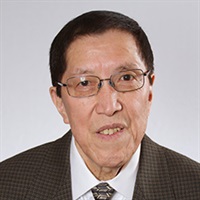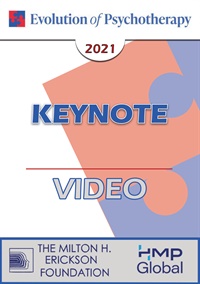EP21 Keynote 09 - Racial Dialogues: What Makes Them So Difficult? - Derald Wing Sue, PhD
- Average Rating:
- Not yet rated
- Topic Areas:
- Keynotes | Multicultural
- Categories:
- Evolution of Psychotherapy | Evolution of Psychotherapy 2021
- Faculty:
- Derald Wing Sue, PhD
- Course Levels:
- Master Degree or Higher in Health-Related Field
- Duration:
- 1 hour
- Format:
- Audio and Video
- Original Program Date:
- Dec 04, 2021
- License:
- Never Expires.
Tags: Multi-Cultural
Description
Sometime between the years 2030 and 2050 Black, Indigenous and People of Color (BIPOC) will become a numerical majority in society. It will become increasingly difficult for mental health professionals, and educators not to encounter clients and students who differ from them in terms of race, ethnicity and culture. Difficult dialogues on race and other sociodemographic identities (gender, sexual orientation or identity) have often served to polarize and obstruct mutual understanding rather than to clarify and increase mutual understanding. Most well intentioned people (mental health providers, educators and others) find themselves ill prepared to deal with the often-explosive race or gender related emotions that manifest themselves in interpersonal interactions and in employment and other public spaces. Poorly handled by participants (whether therapist and client, educator and student) such dialogues may result in disastrous consequences (anger, hostility, silence, complaints, misunderstandings, blockages of everyday communications and the learning process); skillfully handled they present an opportunity for growth, improved communication, and learning. Although difficult dialogues can involve any marginalized group identity, my focus in this presentation be on “race talk” or difficult racial conversations.
The keynote is intended to provide insights into the meaning of what constitutes a difficult dialogue on race; increase awareness, knowledge and skills needed to converse openly and honestly on race, racism, whiteness and white privilege; and become authentic and comfortable in interracial dialogues and interactions.
Learning Objectives
- Discuss the fears that undergird discussions on race, racism, whiteness and White privilege.
- Outline barriers to honest racial dialogues.
- Elucidate the “clash of worldviews” that come from a White and Person of Color perspective.
- Discuss how people can become comfortable in racial dialogues and how they may facilitate positive outcomes.
Credits
Faculty

Derald Wing Sue, PhD Related Seminars and Products
Derald Wing Sue, Ph.D in Counselling Psychology, is Professor of Psychology and Education in the Department of Counseling and Clinical Psychology at Teachers College and the School of Social Work, Columbia University. He was the co-founder of the National Multicultural Conference and Summit, co-founder and first President of the Asian American Psychological Association, past presidents of the Society for the Psychological Study of Culture, Ethnicity and Race, and the Society of Counseling Psychology. Derald has served as Editor of the Journal for Counseling and Development, Associate Editor of the American Psychologist, Editorial Board Member to The Counseling Psychologist, Asian American Journal of Psychology, Asian Journal of Counselling, and serves on the Council of Elders for Cultural Diversity and Ethnic Minority Psychology.
Derald is a pioneer in the field of multicultural psychology, microaggression theory, racial dialogues, multicultural counseling and therapy, and the psychology of racism/antiracism. He is author of four best-selling texts: (1) COUNSELING THE CULTURALLY DIVERSE: THEORY AND PRACTICE, (2) OVERCOMING OUR RACISM: THE JOURNEY TO LIBERATION, (3) MICROAGGRESSIONS IN EVERYDAY LIFE: RACE, GENDER AND SEXUAL ORIENTATION, and (4) RACE TALK AND THE CONSPIRACY OF SILENCE: UNDERSTANDING AND FACILITATING DIFFICULT DIALOGUES ON RACE. As evidence of Dr. Sue's stature in the field, two studies of multicultural publications and scholars concluded, Impressively, Derald Wing Sue is without doubt the most influential multicultural scholar in the United States today.


